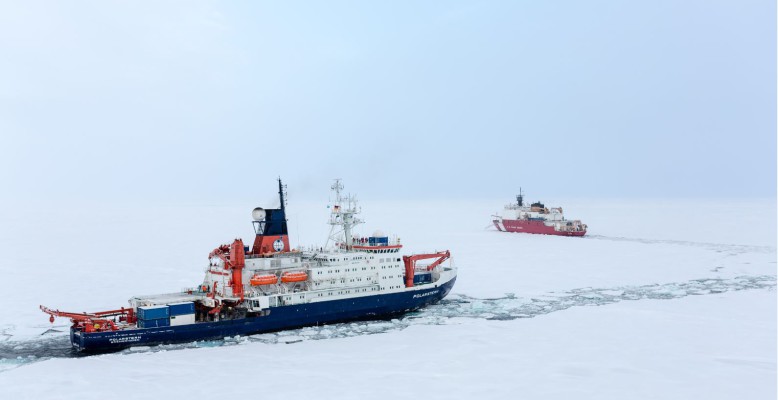Russia is looking to extend its rights into the Arctic continental shelf, which it shares with other countries, including the United States.
“In the preliminary discussions, the representatives of the experts appreciated the high level of professional development of the Russian application,” RIA Novosti quoted the head of the Ministry of Natural Resources of Russia, Dmitry Kobylkin, as saying on Wednesday. Russia’s request will be under consideration at a meeting of the United Nations subcommittee in New York in March.
Under a UN convention called The Law of the Sea, coastal states can claim an exclusive economic zone within a distance of up to 200 nautical miles, or 370 kilometers, from their coastline. The convention allows for an extension of up to 350 miles (648 kilometers) from the coastal state's baseline, depending upon the size of the country's continental shelf.
On this basis Russia made a claim to the UN Commission on the Limits of the Continental Shelf to expand its Arctic shelf beyond the 200 mile area, on December 20, 2001. The request was declined in 2002 because of lack of geological evidence. The territory claimed by Russia includes the Lomonosov Ridge, an underwater mountain ridge passing near the North Pole, as well as the Mendeleev Ridge situated on the Russian side of the Pole, which, according to the Russians, are extensions of the Eurasian continent.
Over the next decade, Russia conducted geological and geophysical research in the Arctic waters to collect additional data in support of its bid.
Canada, Denmark (via Greenland), Norway, the U.S. and Russia have an interest in delimiting their adjacent continental shelf territories in the Arctic Ocean due to natural resources and possible sea routes that could someday make shipping and transportation faster and more efficient.
According to geologists’ preliminary estimations, the area may contain nearly 30 percent of the world’s remaining natural gas and 15 percent of its oil under the bottom of the northern seas. In addition, a climate change-induced ice melt at the North Pole opened up new important shipping routes that provide 40 percent shorter distances between Europe and East Asia. All of these turn the region into a new geopolitical hotspot.
Energy exports play an essential role in Russia’s economy, and securing new natural resources is vital to the country’s future. Russia has already built the world's first ice-resistant oil rig and offshore Arctic platform. The country is also constructing several floating nuclear power stations to provide energy to major coastal cities.
While Russia’s plans are ambitious, officials from the U.S. are highly concerned about its claims to the Arctic.
“It’s nobody's lake,” said Admiral James Foggo, the commander of the U.S. Naval Forces Europe and Africa and Joint Forces Command Naples, in an interview with the Washington Examiner on February 20. “It should have free and fair access to, certainly, all the Arctic Council nations - of which we [the U.S.] are a member.”
Vladimir Olenchenko, the senior research fellow at the European Research Centre of the International Relations Institute of the Russian Academy of Sciences, predicts that the U.S. may oppose Russia’s bid at the UN.
“However, the application has been deeply worked out, and the question has been studied for a long time, we have deeply penetrated into it, we have taken into account all the features, legal aspects,” Olenchenko said on the radio Sputnik. “And, most importantly, it was taken into account that the Arctic is the future potential of both mineral consumption and climate control.”







 The Islamic holy month of fasting, Ramadan comes to an end this week with the celebration of a joyous festival called Eid (meaning “festival” in Ar...
The Islamic holy month of fasting, Ramadan comes to an end this week with the celebration of a joyous festival called Eid (meaning “festival” in Ar...
 Azerbaijan officially unveiled the logo for the upcoming 29th session of the Conference of the Parties to the United Nations Framework Convention o...
Azerbaijan officially unveiled the logo for the upcoming 29th session of the Conference of the Parties to the United Nations Framework Convention o...
 Iranian President Ebrahim Raisi warned Israel that it would face a "real and extensive" response if it makes any "mistake" following Tehran’s missi...
Iranian President Ebrahim Raisi warned Israel that it would face a "real and extensive" response if it makes any "mistake" following Tehran’s missi...



